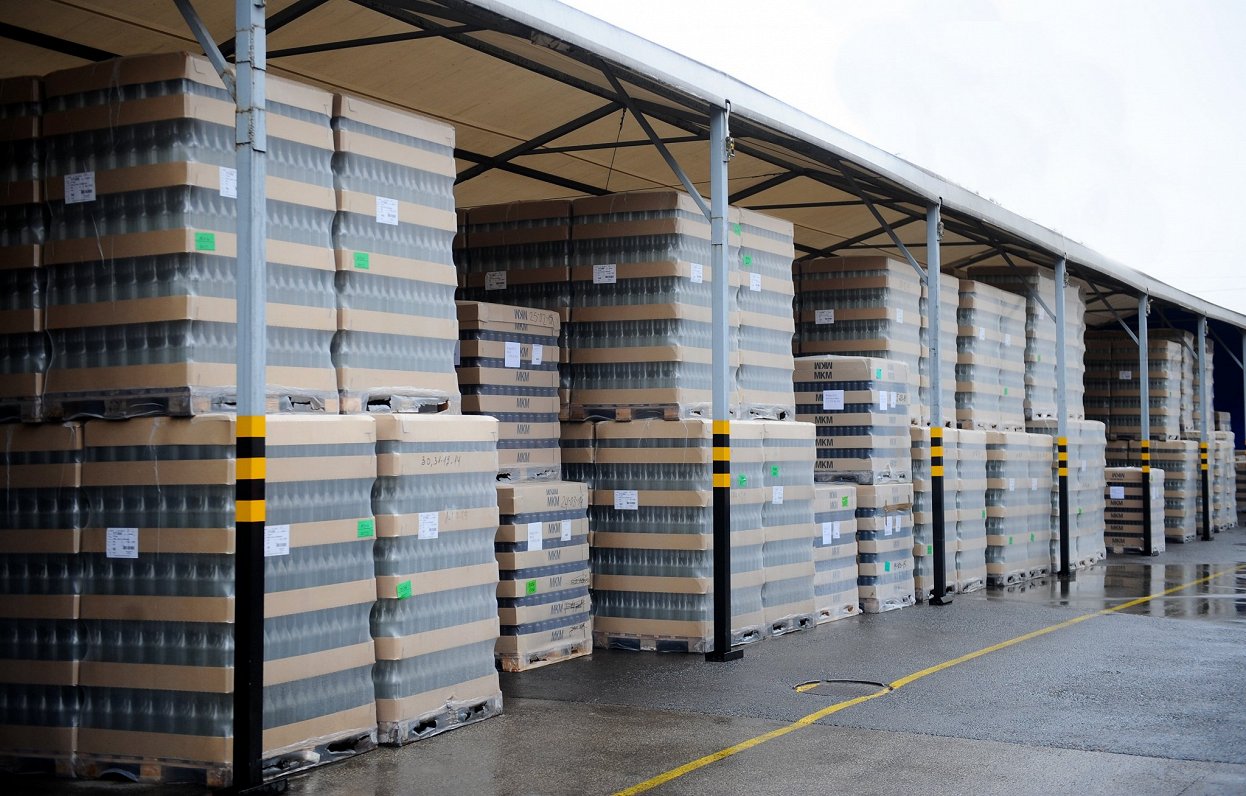On 31 January 2020, Britain officially left the European Union (EU). Until 31 December, a transitional period has been set, which means that the United Kingdom does not participate in EU decision-making, but cooperation continues as it has been.
Britain is the sixth-largest export market for Latvia. According to statistics, this year until August goods and services exported to England were worth EUR 436 million, representing more than 5% of Latvia's total exports. Two-thirds of Latvia's exports to the United Kingdom are wood and sawn wood.
"Sawn wood and timber products have been exported for €275 million this year. Also various types of metal and aluminum construction and electrical equipment, various mechanisms, hardware, furniture: pharmaceuticals are less than 10 million. This year, in the services group, we see there is air transport and the aviation sector, travel and the financial sector. Our exports to Britain have fallen by 12% in eight months this year," said Jānis Salmiņs, head of the Ministry of Economics's Analytics service.
Exports are not only affected by Brexit, but also by the Covid-19 pandemic.
Last week, the State Revenue Service (VID) organized a seminar on changes in exports to Britain. VID Customs Administration spokeswoman Irēna Knoka said – Latvian authorities are preparing that Britain will withdraw from the EU without an agreement.
"Given the freedom of movement of goods until now, the administrative burden or customs control suddenly appears. The Member States suddenly have an external border: France, Eurotunnel, the ports of Belgium and the Netherlands, where the most active transshipment of cargo takes place. We need to prepare very seriously. The increase in cargo handling will be a maximum of about 10%.
The airport customs control point and Rīga freeport will be under increased pressure. The key is to prepare timely," Knoka said.
Latvian Employers' Confederation (LDDK) Director General Līga Meņģelsone said– businessmen are preparing for more expensive exports to Britain. "We call for attention to be paid on January 1 next year, when there will be access to European systems to complete movement operations. You should be very careful not to make the transition difficult and expensive.
Of course, everyone has already calculated their costs because they will be similar to [other] third countries," Meņģelsone said.
Entrepreneurs expect a point of contact and information from the State. “It would be good practice. In the event of any changes, this point of contact may quickly give its assessment of both practical cases and how to address the challenges.
It is very important that there is someone who knows all aspects and can help quickly, because usually it involves time and money.
Entrepreneurs will also have more experience over time, so there will be fewer issues," Menģelsone said.
Latvian Investment and Development Agency (LIAA) Deputy Director Reinis Āzis estimated that Latvia's exports to Britain will decrease in the services sector and tourism. He estimated that Brexit would have the most negative impact on small and medium-sized businesses.
“Experienced exporters have a team that works in both the U.K. and third-world countries, and these entrepreneurs will be able to refocus and cope with the challenges. Small and medium-sized enterprises exporting only to the EU are faced with export, import procedures and administrative documents which they didn't have before. The other main thing is tariffs and quotas per product groups. For example, in the timber industry and electronics industry, we are competing with other EU countries on the UK market, now the rules will be the same for everyone. The British have not applied these procedures since they entered the EU in the middle of the last century.
I expect there will also be a rather significant delay on the side of the British partners, for which I am even more worried than about the competitiveness of our entrepreneurs,” said Āzis.
The VID invites entrepreneurs to follow up on current information on changes in customs tariffs and procedures for exports to Britain on the VID homepage and on the Electronic declarations system.






























